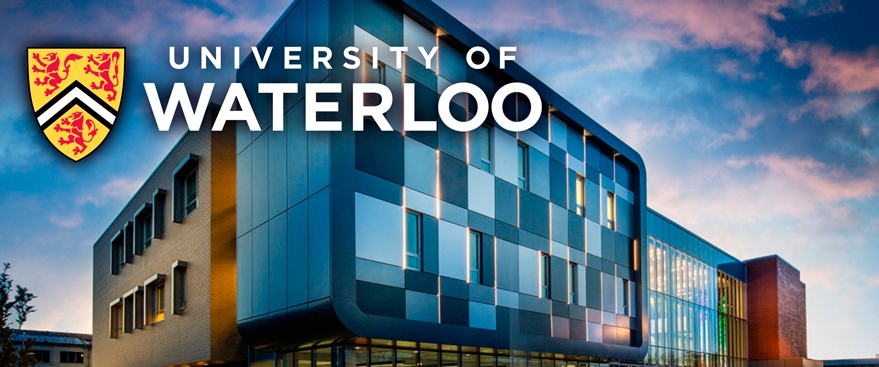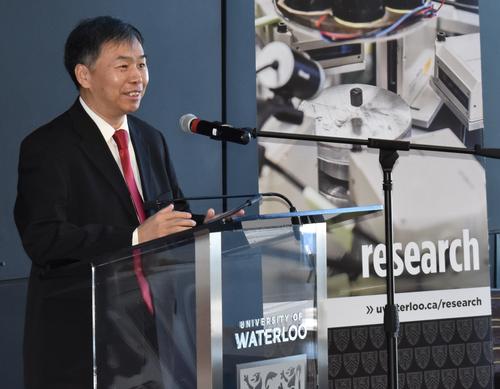
Funding was formally announced this week for a four-year, $1.9-million project to develop low-cost, durable hydrogen fuel cells to power buses and cars.
The project – a collaboration involving academia, industry and government – is led by Waterloo Engineering professor Xianguo Li, a world-class researcher in the field for two decades.
“As a researcher, nothing is more exciting than the announcement of money,” he told onlookers at the event in Engineering 7. “But that’s just the beginning. In fact, the most important thing is execution. We will work so hard in the lab to deliver.”
 The research project is backed by the Canadian Urban Transit Research and Innovation Consortium (CUTRIC), which is contributing a quarter of the funding.
The research project is backed by the Canadian Urban Transit Research and Innovation Consortium (CUTRIC), which is contributing a quarter of the funding.
The other partners are Western University, Ballard Power Systems Inc., StarPower ON Systems Inc., and the Natural Sciences and Engineering Research Council of Canada (NSERC).
“There are a lot of areas where Canada punches above its weight,” said Josipa Petrunic, executive director and CEO of CUTRIC. “Certainly, hydrogen fuel cell technology is one of the areas.”
Fuel cells have long been a promising source of green power for vehicles and other applications, but commercialization has been slowed by challenges involving cost and durability.
‘Together we can do some really good things’
Alan Young, a Waterloo Engineering alumnus who is the principal research engineer at Ballard, said work by Li, a professor of mechanical and mechatronics engineering, and colleagues to develop a new class of catalyst materials in fuel cells should help change that.
“I think together we can do some really good things,” said Young, who recalled how his interest in the technology was sparked while he was an undergraduate student at Waterloo.
In addition to developing what researchers hope will be the next generation of fuel cells, the project will help train 14 graduate students, postdoctoral fellows, research associates and summer interns.
Petrunic said the adoption of zero-emission fuel cells in buses, trains and other vehicles will contribute to Canada meeting national and global climate change targets.
Source: University of Waterloo
Read the most up to date Fuel Cell and Hydrogen Industry news at FuelCellsWorks




